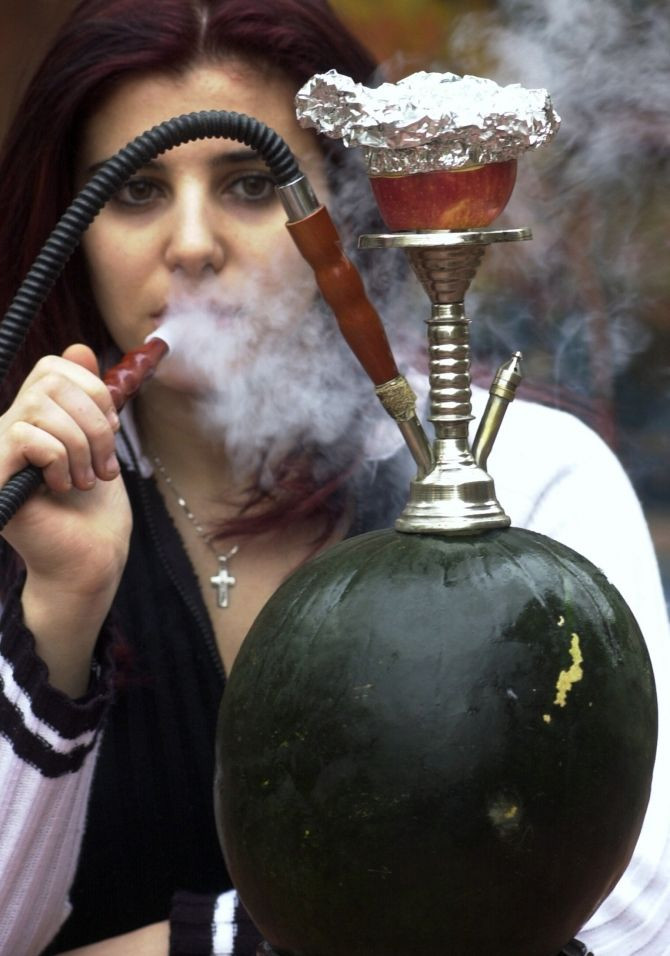As More People Try Hookah Smoking, Remember It's Just as Dangerous as Cigarettes

As hookah smoking becomes increasingly popular, a recent study suggest nearly a quarter of college women try their first hookah during their freshmen year.
According to research conducted at The Miriam Hospital's Center for Behavioral and Preventive Medicine, the more alcohol women consumed, the higher the chance they would experiment with hookah smoking, whereas women who engaged in smoking marijuana engaged in hookah frequently.
Robyn L. Fielder, M.S., lead author and a research intern at The Miriam Hospital's Centers for Behavioral and Preventive Medicine, observed 483 first-year female college students. Each participant completed an initial survey answering questions regarding their precollege hookah use, followed by a 12-month online survey discussing their experience with hookah. Out of 343 students who did not engage in hookah prior to college, 23 percent of those students admitted to trying hookah their freshmen year of college.
An assessment of the study also revealed the direct correlation between alcohol, marijuana and personality traits. Researchers found alcohol consumption predicted an increased possibility of hookah use. Marijuana and personality traits, including impulsivity and those who tend to compare one’s self to others, led to more frequent use.
Though many young adults do not consider hookah to be as troubling as cigarette smoking, hookah contains the same health risks as smoking cigarettes. According to the Centers for Disease Control and Prevention, water pipe smokers may absorb higher concentrations of the toxins found in cigarette smoke. Compared to cigarettes, an hour spent smoking hookah contains 100-200 times more volume of smoke.
What many young people are unaware of is water pipe smokers can be susceptible to diseases such as oral cancer, lung cancer and stomach cancer. Along with the exposure to similar toxins as cigarettes, the charcoal used to heat the tobacco in water pipes, produces high levels of carbon monoxide, metals, and cancer-causing chemicals.
According to Fielder, "Youth tend to overestimate the extent to which their peers use substances, and because it's important to fit in with one's peers, this can lead to greater risk-taking." She continued, "Our research suggests prevention and intervention efforts should jointly target all substance use, including hookah, alcohol, marijuana and cigarettes, to optimize the public health impact."
Hookah, which originated in ancient India and Persia, has becoming increasingly popular with hookah cafe's emerging worldwide.
The study was published in the journal Psychology of Addictive Behaviors.



























